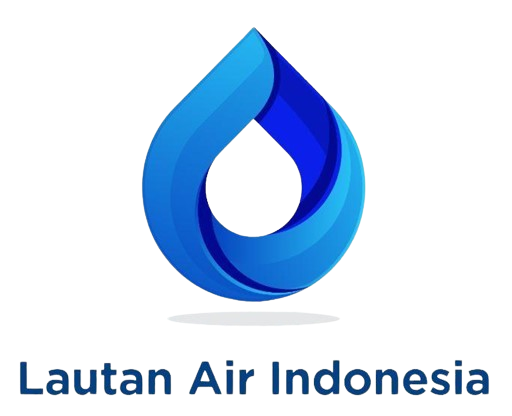Demineralization systems play a crucial role in various industries, especially in water treatment for boilers, cooling systems, and other production processes. However, one of the biggest challenges in this system is corrosion.
Corrosion not only causes equipment degradation, but also increases maintenance costs, reduces system efficiency, and even causes high-risk operational failures.
Corrosion in demineralization systems often occurs due to several main factors, such as pH imbalance, the presence of dissolved oxygen, and metal ion contamination. If not handled properly, corrosion can cause leaks, blockages, and decrease the overall performance of the demineralization unit. This certainly has a negative impact on the sustainability of operations and production costs.
So, how do you prevent corrosion in a demineralization system? Before discussing the solution, let’s understand more deeply the main causes of corrosion and its impact on the system.
Causes of Corrosion in Demineralization Systems
Corrosion occurs due to chemical reactions between metal and its surrounding environment. In demineralization systems, several factors that trigger corrosion include:
1. Uncontrolled pH
Demineralization systems aim to remove ions that cause hardness and contamination in water. However, if the pH is too low or too high, pipe materials and storage tanks can corrode more quickly. An unbalanced pH can also reduce the life of the ion exchange resin used in demineralization systems.
2. Excess Dissolved Oxygen
Dissolved oxygen in water is one of the main factors causing corrosion. Oxygen can react with metals in the system and form rust and oxide layers that damage equipment components.
3. Metal Ion Contamination
Metal ions such as iron and copper entering the demineralization system can trigger galvanic corrosion. This type of corrosion occurs when two metals with different electropotential levels come into contact in a conductive environment, causing the metal with the lower potential to degrade more rapidly.
4. Microbial Activity
In some cases, the growth of certain microorganisms can accelerate the corrosion process. Bacteria such as sulfate-reducing bacteria (SRB) produce sulfuric acid that can attack metal structures and accelerate system degradation.
Without proper control, these four factors can cause serious damage to demineralization systems. However, there are effective measures that can be implemented to prevent and control corrosion.
Read Also: How to Overcome High COD and BOD in Wastewater?
How to Prevent Corrosion in Demineralization Systems
To prevent corrosion in demineralization systems, a comprehensive strategy based on proper maintenance is required. Here are some of the main solutions that can be implemented:
1. Proper pH Control
Maintaining pH within the optimal range is essential to prevent corrosion. The use of pH regulating chemicals such as Sodium Hydroxide (NaOH) or Hydrochloric Acid (HCl) can help maintain pH balance in the demineralization system. In addition, regular pH monitoring with an accurate measuring device is highly recommended.
2. Removal of Dissolved Oxygen
To overcome excess dissolved oxygen, methods such as thermal deaeration or the use of chemicals such as sodium sulfite (Na₂SO₃) can be used. Thermal deaerators work by heating the water and removing dissolved oxygen before it enters the system.
3. Filtration and Removal of Metal Ions
The use of effective filtration systems such as deep filtration and special filter media (DMI-65, activated carbon, silica sand) can help filter metal particles that have the potential to cause corrosion. In addition, the use of high-quality ion exchange resins can also help remove metal ions from raw water.
Read Also: What are the Impacts of High TSS and Turbidity in Raw Water?
4. Use of Corrosion Inhibitors
Corrosion inhibitors are chemicals that can form a protective layer on the surface of metals to prevent corrosive reactions. Some commonly used inhibitors include phosphates, polyphosphates, and molybdates.
5. Sterilization to Prevent Microbial Attacks
Sterilisasi dengan ultraviolet (UV) atau ozonisasi dapat membantu mengurangi pertumbuhan mikroorganisme dalam sistem demineralisasi, sehingga mengurangi risiko korosi mikrobiologi.
6. Periodic Maintenance and Monitoring
Regular inspection and periodic monitoring of water parameters are essential to prevent corrosion. By conducting real-time monitoring using IoT sensors and automated control systems, changes that could potentially cause corrosion can be detected earlier so that preventive measures can be taken immediately.
Trust Your Demineralization System Protection to Lautan Air Indonesia
Keeping a demineralization system optimal and free from corrosion requires a planned approach and support from experienced experts. Lautan Air Indonesia is here as a trusted solution in industrial water treatment with more than 40 years of experience in providing quality services and products.
Lautan Air Indonesia provides a variety of solutions to prevent corrosion in demineralization systems, including:
- Provision of pH control chemicals and corrosion inhibitors to maintain system stability.
- Periodic maintenance and consulting services to ensure your system remains in optimal condition.
- Advanced filtration technology to remove corrosion-causing metal ions.
- IoT-based control system for real-time monitoring and early detection of potential corrosion.
With services from Lautan Air Indonesia, you can ensure that your industry’s demineralization system continues to run efficiently, safely, and has a long life.


